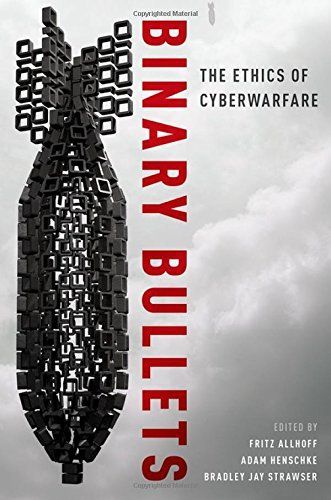
Binary Bullets The Ethics of Cyberwarfare
Philosophical and ethical discussions of warfare are often tied to emerging technologies and techniques. Today we are presented with what many believe is a radical shift in the nature of war-the realization of conflict in the cyber-realm, the so-called "fifth domain" of warfare. Does an aggressive act in the cyber-realm constitute an act of war? If so, what rules should govern such warfare? Are the standard theories of just war capable of analyzing and assessing this mode of conflict? These changing circumstances present us with a series of questions demanding serious attention. Is there such a thing as cyberwarfare? How do the existing rules of engagement and theories from the just war tradition apply to cyberwarfare? How should we assess a cyber-attack conducted by a state agency against private enterprise and vice versa? Furthermore, how should actors behave in the cyber-realm? Are there ethical norms that can be applied to the cyber-realm? Are the classic just war constraints of non-combatant immunity and proportionality possible in this realm? Especially given the idea that events that are constrained within the cyber-realm do not directly physically harm anyone, what do traditional ethics of war conventions say about this new space? These questions strike at the very center of contemporary intellectual discussion over the ethics of war. In twelve original essays, plus a foreword from John Arquilla and an introduction, Binary Bullets: The Ethics of Cyberwarfare, engages these questions head on with contributions from the top scholars working in this field today.